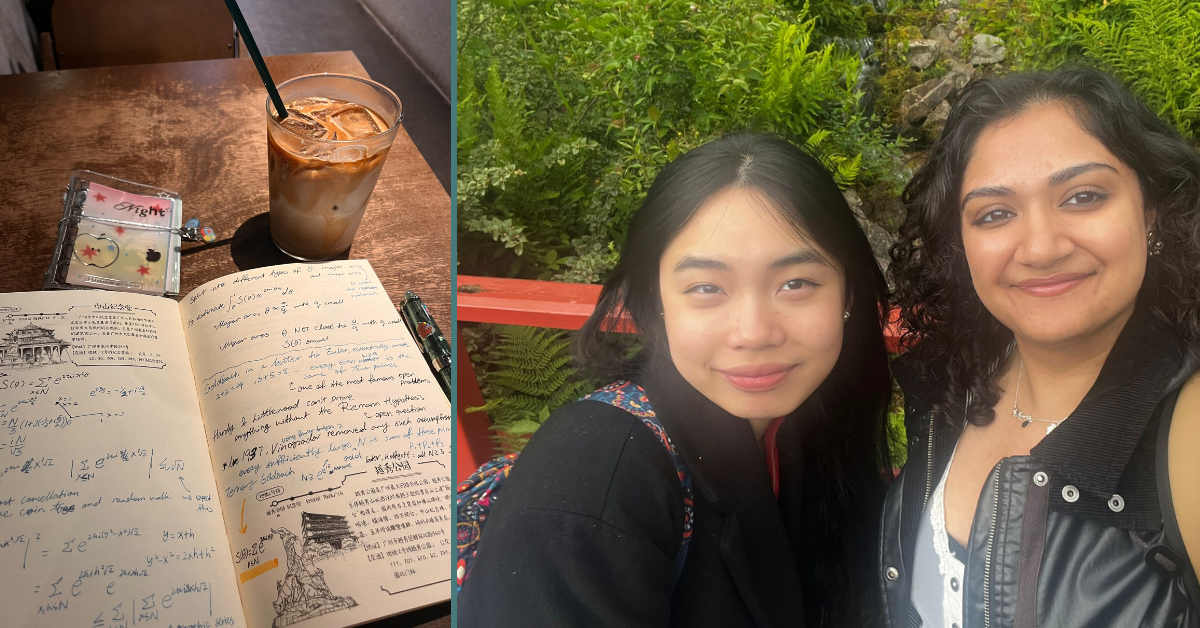Yoyo’s guide to falling back in love with maths

When you lose passion for your degree, how do you find it again?
By Yuchang Yoyo Yang
Recently, perhaps because of the cold weather, perhaps because of the lack of sunlight, or perhaps because I’ve been doing this for almost four years, I noticed that I have lost the passion I once had for maths!
I spoke to my friend from Philosophy about it, and it turns out I am not the only one feeling this way. I suppose it’s a fairly common student experience – losing passion for something you once loved so deeply that you chose to pursue an entire four-year degree on it.
So the question is: when you lose passion for your degree, what are the things you can do to find it again? Here are three tips that helped me and my friend:
-
Talk to people who still love it
When people talk about something they are passionate about, their whole presence lights up, radiating contagious positive energy. My friend and I decided to reach out to people in our fields of study, lecturers from our favourite courses, tutors who always seemed enthusiastic, or fellow students we often see around campus.
We figured anyone willing to commit so much to one field must have found something in it that deeply inspired them and gave their work meaning.
Turns out we were right! By asking people the simple question ‘Why do you like maths?’, I learned so many fascinating new perspectives, intriguing facts, and different branches of maths I never even knew existed. Hearing about what makes maths meaningful to them not only inspired me but also reminded me of the excitement and curiosity I once had.
-
Discover your curiosity
Once you’ve spoken to people, you should start to have a clearer idea of what interests you and what you’d like to explore further. From here, you can follow your curiosity by building something that is of your own.
This might be a personal reading list based on the recommendations you received, a personal project on a question that fascinates you, or – as I did – a maths journal!
In my journal, I made a habit of spending an hour or two each day researching topics outside my courses that I was curious about, like the origins of algebra, how do you define what a number is, or why maths?
-
Find what it means to you
Yup, why maths? Now that you have heard the reason from other people, it’s time to decide for yourself.
After we did our share of exploring, my friend and I sat together in the meadows and began to discuss what our field of study really means to us. Talking to a friend about this is very valuable because they can always bring fresh perspectives and ideas to the conversation that you might not have thought about.
With the combined power of maths and philosophy, we concluded that the answer is simple: it’s simply because we are human. At its core, both maths and philosophy arise from the human curiosity for the world we live in, our desire to understand it, to explain it, and describe it in language we can understand. A curiosity that comes from the love we have for the world around us, the love for each breath of air we take, every constellation we gaze at, and the patterns in the leaves we discover. For me, that reason alone is enough to keep choosing maths.

Yoyo’s maths journal



